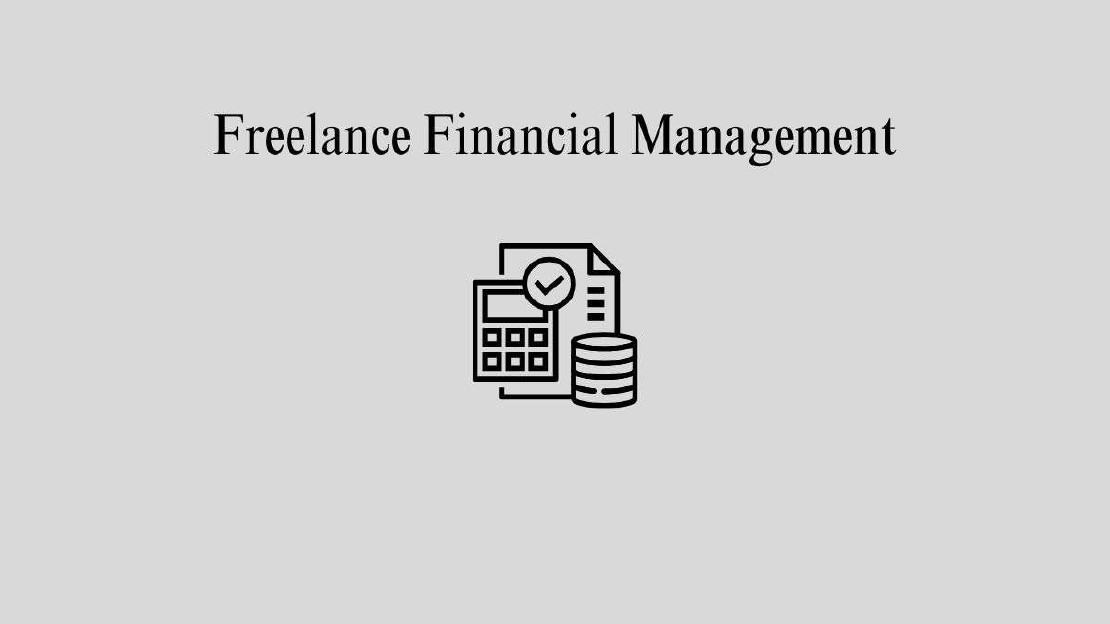Managing Freelance Finances
Freelancing offers unparalleled freedom and flexibility, but it also brings unique financial challenges. Unlike traditional employees who receive regular paychecks and often have access to employer-sponsored benefits, freelancers must navigate fluctuating incomes, manage their own benefits, and handle all aspects of their financial planning independently. Thus, managing finances as a freelancer requires meticulous planning, disciplined budgeting, and proactive savings strategies.
How to Manage Your Freelance Finances
Managing finances as a freelancer can be challenging, but with some strategies, it becomes manageable. Here are a few effective tips for freelancers to keep their finances in check. First, always separate personal and business expenses. Open a dedicated bank account for your freelance income. Create a budget to track earnings and expenditures. Save a portion of your income for taxes to avoid surprises. Consider hiring an accountant for professional advice. Regularly set aside savings for slow months. Keep detailed records of all transactions to streamline tax filing. With these tips, you can maintain financial stability and focus on growing your freelance business.
Create a Comprehensive Budget
First and foremost, creating a comprehensive budget is crucial for freelancers. A well-structured budget helps track income and expenses, ensuring that freelancers can cover their monthly obligations while setting aside funds for taxes, savings, and investments. To start, freelancers should list all their fixed and variable expenses, including rent or mortgage, utilities, groceries, insurance, and discretionary spending. Next, they should estimate their average monthly income based on past earnings and future projections. It’s essential to be conservative in these estimates to account for potential income variability.
Identify a Backup Plan
In addition to budgeting, maintaining an emergency fund is vital. Freelancers face unpredictable income streams, making it crucial to have a financial cushion for leaner months or unexpected expenses. Ideally, an emergency fund should cover three to six months of living expenses. This fund provides peace of mind and financial stability, allowing freelancers to navigate periods of low income without resorting to high-interest debt.
Track Your Finances
Tracking expenses meticulously is another cornerstone of effective financial management for freelancers. Various tools and apps can simplify this process, enabling freelancers to categorize and monitor their spending. Regularly reviewing expense reports helps identify unnecessary expenditures and areas where one can cut costs. Moreover, tracking expenses is essential for accurate tax reporting and deduction claims. Freelancers can often deduct business-related expenses such as office supplies, travel, and software subscriptions, reducing their taxable income. On a different note here are a few Freelance Stats.
Get Ready for Taxes
Tax planning is a critical aspect of managing freelancer finances. Unlike salaried employees, freelancers must handle their own tax withholdings and make quarterly estimated tax payments. Failure to do so can result in hefty penalties and interest charges. Freelancers should set aside a percentage of their income—typically 25-30%—for taxes. Consulting with a tax professional can provide valuable insights into allowable deductions and tax-saving strategies, ensuring compliance and maximizing savings.
Secure Your Financial Future
Beyond budgeting and tax planning, freelancers should prioritize saving for retirement. Without access to employer-sponsored retirement plans, freelancers must take the initiative to secure their financial future. Several retirement savings options are available, such as Individual Retirement Accounts (IRAs), Solo 401(k)s, and Simplified Employee Pension (SEP) IRAs. Each plan has its own contribution limits and tax advantages. Consistently contributing to a retirement fund, even in small amounts, can significantly impact long-term financial security.
Discover Passive Income Ideas
Investing wisely is another crucial element of managing freelancer finances. Diversifying income streams and investing in assets that generate passive income can help freelancers achieve financial growth and stability. Stocks, bonds, mutual funds, and real estate are common investment vehicles. Freelancers should assess their risk tolerance and financial goals before making investment decisions. It might be beneficial to consult with a financial advisor to develop a tailored investment strategy.
Establish Multiple Streams of Income
Income diversification is another strategy that can enhance financial stability for freelancers. Relying on a single client or project can be risky, especially in volatile industries. By diversifying their client base and seeking multiple income streams, freelancers can mitigate the impact of losing a major client or experiencing a downturn in one sector. This approach not only stabilizes income but also opens up opportunities for growth and expansion.
Manage Invoices with Properly
Effective invoicing practices are also vital for managing freelancer finances. Clear and timely invoices ensure that freelancers get paid promptly, maintaining cash flow. Including detailed descriptions of services rendered, agreed-upon rates, and payment terms can prevent disputes and delays. Additionally, setting up automated reminders for overdue invoices can help freelancers manage late payments efficiently.
Build a Core Network of Freelance Peers
Building a financial network is another valuable strategy. Networking with other freelancers and financial professionals can provide support, advice, and opportunities for collaboration. Joining freelance communities and attending industry events can foster connections that enhance financial knowledge and business prospects..
In conclusion, managing finances as a freelancer involves a multifaceted approach that encompasses budgeting, expense tracking, tax planning, saving for retirement, investing, insurance, income diversification, invoicing practices, continuous learning, networking, and work-life balance. By implementing these strategies, freelancers can achieve financial stability, growth, and long-term security, ensuring that their freelance careers remain both fulfilling and sustainable.
Recent Posts

- Freelancing
Make Money on Fiverr
Fiverr has revolutionized the freelance marketplace by offering a platform where freelancers can sell their services, or “gigs,” starting at just …

- Freelancing
Explore Freelance Writing Jobs
In the continuously changing environment of the digital era, freelancing has emerged as a dynamic and lucrative profession for those who choose to be their own …

- Freelancing
Sensational Grant Writing Tips
In today’s nonprofit landscape, securing funding through grants is essential for organizations to achieve their missions and serve their communities …
